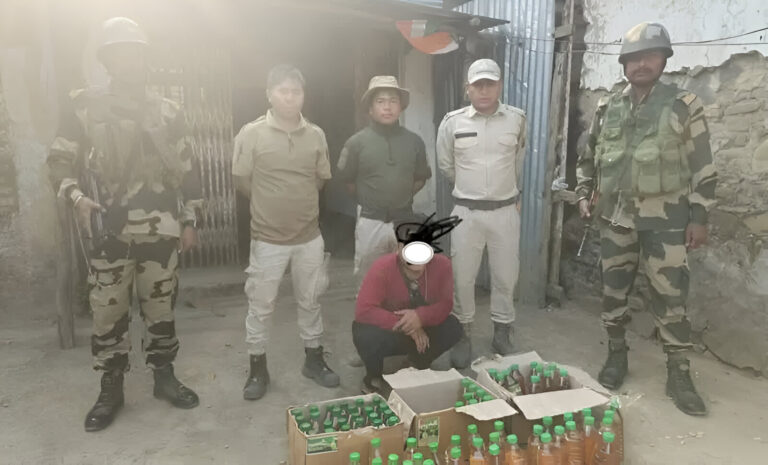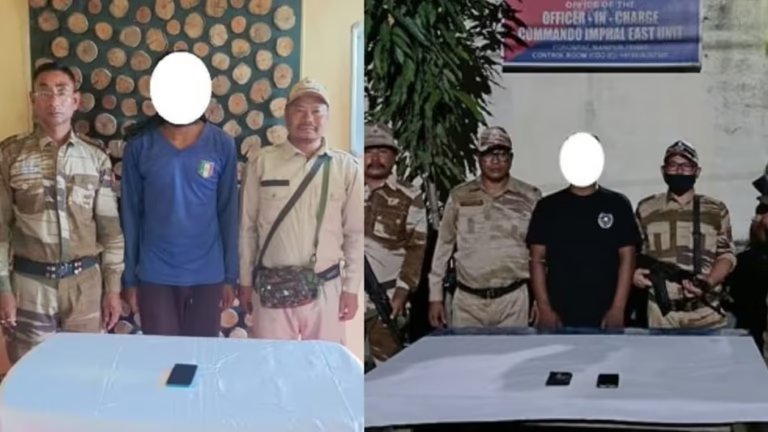Tripura: Woman’s Half-Burnt Body Found in Mirza Husband Blames MLA’s Aides, Four Arrested
A woman’s half-burnt body was recovered in Mirza (Kakraban area), Gomati district, Tripura, on September 20, 2025. Her husband alleges that she was assaulted by associates of the local BJP MLA and later found burned; the police initially registered an unnatural-death probe and later an abetment-to-suicide case. Four people have been arrested and an assistant sub-inspector was suspended amid strong political reactions and calls for an impartial inquiry.
Early on the morning of September 20, 2025, residents found the charred remains of a woman in Mirza, located in the jurisdiction of Kakraban police station in Gomati district. The deceased — reported in local media as a shopkeeper’s wife — was taken to a mortuary and preliminary reports described the body as half-burnt. Initially, the police registered a case of unnatural death, but following statements and local pressure the investigation was expanded and a case of abetment to suicide was added. Authorities say four accused individuals have been arrested in connection with the incident.
Husband’s allegation — naming the accused and political link
What intensified the story was the husband’s claim. He told police and media that he and his wife had been assaulted the night before by three people — including Manna Majumder, who is reported to be the nephew of BJP MLA Jitendra Majumder (Kakraban-Salgarh). According to the husband, they went to the police station to lodge a complaint but were allegedly refused; they later returned home and slept separately; the next morning his wife was found charred on a nearby road. He believes that the assault precipitated her death and publicly accused the MLA’s associates of responsibility. Local media and opposition leaders amplified these allegations, demanding swift action and impartial investigation.
After the body was found and accusations surfaced, the police moved to detain suspects. Reports indicate four persons were arrested in the case, and the investigating officer upgraded the FIR from “unnatural death” to include abetment to suicide as more information emerged. Meanwhile, the Assistant Sub-Inspector (ASI) of Kakraban police station was suspended for alleged negligence in duty — a disciplinary step authorities said was taken while the inquiry continued. The state’s Finance Minister visited the victim’s house and assured residents of an impartial probe, while opposition parties attacked the police for allegedly shielding the accused.
Suspending a police officer is both a corrective signal and a political move: it reassures the public that the administration is taking the lapse seriously, but it must be accompanied by a transparent investigation to avoid symbolic action that masks deeper accountability gaps.
FAQs
Q1: Who has been arrested so far in the Tripura Mirza case?
A1: Local authorities reported that four suspects were arrested in connection with the incident. Media reports identify one accused as Manna Majumder (alleged nephew of a local BJP MLA), based on the husband’s allegation; investigations are ongoing.
Q2: Did the police refuse to register the couple’s complaint as alleged?
A2: The husband alleged they were turned away when they went to Kakraban police station to lodge a complaint. Authorities subsequently suspended an Assistant Sub-Inspector for alleged negligence in duty while the matter is investigated. An independent review of station records and CCTV would clarify the sequence of events.
Q3: What is the difference between a case of ‘unnatural death’ and ‘abetment of suicide’?
A3: An unnatural-death FIR opens an inquiry into any suspicious death. If evidence suggests someone encouraged or assisted the deceased in taking their own life — or created circumstances leading to suicide — police may add abetment of suicide (IPC section 306). If evidence suggests homicide, murder charges may follow. Forensic and testimonial evidence determine which charges fit.
Q4: What forensic tests are likely to be conducted in this case?
A4: Forensic work typically includes a detailed autopsy, burn pattern analysis, toxicology, detection of accelerants (like kerosene), DNA and trace evidence collection, and examination of clothing and scene samples. Ballistic evidence is not relevant here unless weapon use is discovered; instead, chemical and pathology reports will be central.
Q5: How can the public ensure the investigation is impartial?
A5: Citizens can demand transparent steps: a prompt and publicised forensic timeline, independent oversight (e.g., state inquiry panel), protection for witnesses, and rapid filing of a chargesheet based on admissible evidence. Supporting credible civil-society organisations or legal aid groups that monitor the case also helps maintain public scrutiny without inflaming tensions.






